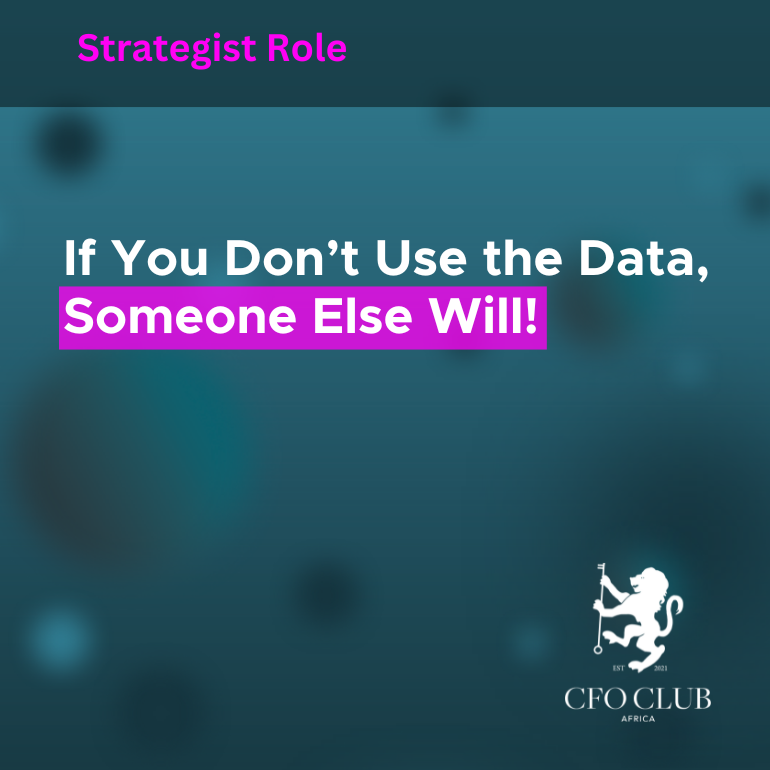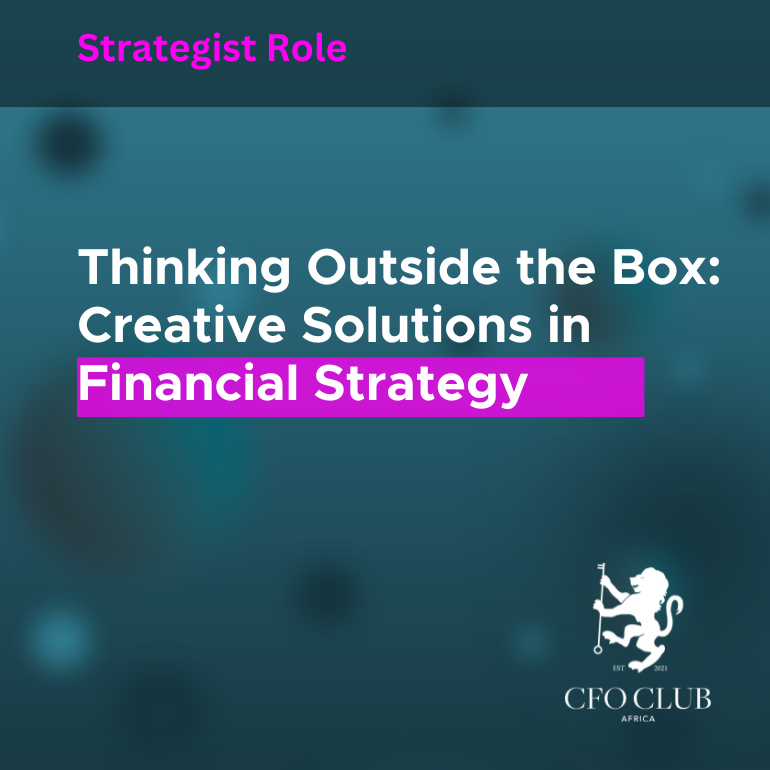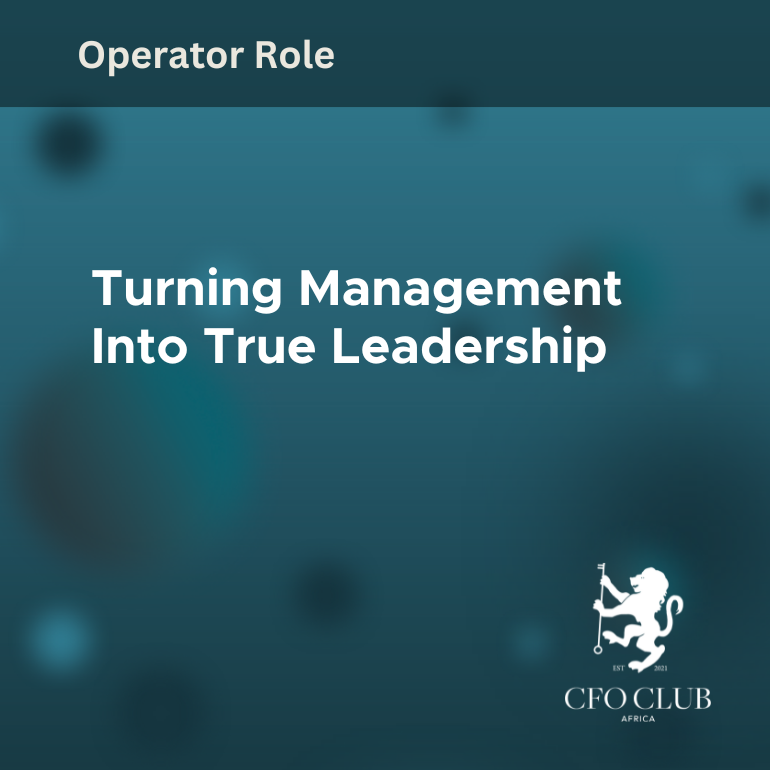If You Don’t Use the Data, Someone Else Will!
If You Don’t Use the Data, Someone Else Will!
For today’s CFO, information is not a by-product of operations, it is the engine of sustainable growth. As the role of the finance leader evolves beyond compliance and control, strategic decision-making increasingly relies on the intelligent use of data. But not just any data. It’s the quality, relevance, and timing of information that separates high-performing finance functions from reactive number-crunching.
Gone are the days when the finance team could operate as the organisation’s historical record-keeper. In a business climate shaped by disruption, volatility, and digital acceleration, the CFO must become a proactive orchestrator of insight—harnessing internal and external information to drive performance, manage risk, and unlock opportunity.
From Scorekeeper to Strategic Navigator
A fundamental shift is taking place in the CFO’s mandate. Financial leaders are expected not only to report on what has happened but to anticipate what’s coming. This demands a recalibration of the finance function’s value proposition—from backward-looking stewardship to forward-looking strategy.
This evolution places new emphasis on:
- Data quality and integration,
- Cross-functional insight generation,
- And the CFO’s ability to ask the right questions.
It is no longer sufficient to provide management with a standard set of financial ratios. Boards and executive teams need clarity on how information translates into action. What does the data reveal about customer behaviour? Supply chain resilience? Market demand? Profitability by product, region, or channel?
This is where the modern CFO steps forward—not as a technician, but as a strategist.
The Strategic Power of Information
Financial leaders sit at the intersection of every major business decision. Whether it’s expansion into a new market, investment in digital infrastructure, or rationalising product lines, information is the common currency that enables sound judgement.
Critically, CFOs must move beyond siloed financial data and begin synthesising a broader spectrum of intelligence. This includes:
- Operational metrics (efficiency, lead times, defect rates),
- Commercial data (customer churn, acquisition cost, price elasticity),
- External indicators (inflation, interest rates, policy changes, ESG reporting trends),
- And increasingly, qualitative inputs (employee sentiment, reputation risk, innovation culture).
The most progressive finance teams are investing in business intelligence capabilities, leveraging dashboards, scenario models, and rolling forecasts to guide resource allocation in real time. These tools are not about fancy visuals; they are about surfacing the right insight at the right moment to inform strategic choices.
Technology as an Enabler, Not the Destination
Digital finance transformation remains a boardroom priority—but it’s not about technology for its own sake. A new cloud ERP, an AI-powered planning tool, or a clever dashboard only deliver value if they help the business make better decisions faster.
Finance teams must play an active role in shaping the information architecture of the organisation. This includes:
- Defining which data matters most,
- Ensuring it is accurate and timely,
- And embedding it into decision-making workflows.
A well-structured information ecosystem provides CFOs with visibility not only into financial performance, but into the underlying levers of value creation, capital cycles, customer profitability, or capital allocation efficiency.
The goal is not more data. It’s smarter insight.
The Risk-Insight Nexus
In a climate of heightened regulatory scrutiny, geopolitical uncertainty, and growing ESG expectations, the CFO must also use information to sharpen risk management and governance practices.
Timely, granular data allows finance leaders to spot emerging risks early—from liquidity pressures and supply chain disruption to reputational issues or compliance red flags. But more importantly, it enables proactive mitigation.
Risk-adjusted decision-making is now a core capability of high-functioning finance teams. By embedding scenario planning, sensitivity testing, and risk scoring into strategic planning processes, CFOs bring clarity and discipline to uncertain environments.
This is not about being conservative. It’s about being prepared.
Culture and Capability Matter
Of course, harnessing information for growth is not purely a technical challenge, it’s a cultural one. For many finance functions, the real barrier to strategic insight is not the technology, but the mindset.
Does your team see itself as a business partner, or a back-office service? Are analysts empowered to challenge assumptions, or do they simply prepare reports on request? Are your people skilled in data interpretation, storytelling, and influence—not just technical accounting?
Investing in the human side of finance—upskilling teams in digital tools, commercial acumen, and communication—is essential if information is to be turned into impact.
Building the Future-Focused Finance Function
Strategic CFOs are already laying the foundations for finance teams that can deliver insight at pace. This means:
- Embedding data thinking into every level of the finance organisation.
- Building partnerships across business units to co-create solutions.
- Shifting from static reporting to dynamic forecasting and real-time analytics.
- Using information to drive accountability and performance conversations, not just to meet compliance requirements.
It also means challenging outdated cycles—annual budgets that become irrelevant in volatile markets, or reports that tell you what happened last quarter instead of what to do next week.
The finance function of the future will not be defined by what it knows, but by how quickly and effectively it can apply what it learns.
Final Thought: Insight Is the New Currency of Growth
For financial leaders navigating uncertainty, the ability to harness and translate information into strategy is not a luxury, it’s a differentiator.
At CIBA, we recognise that finance professionals are not just preparing statements; they are preparing organisations for the future. Insight—when grounded in ethical leadership, robust data governance, and commercial clarity—is the most valuable asset in a CFO’s toolkit.
The question is no longer can you report on the numbers? The question is – can you use the information behind the numbers to move your organisation forward?





